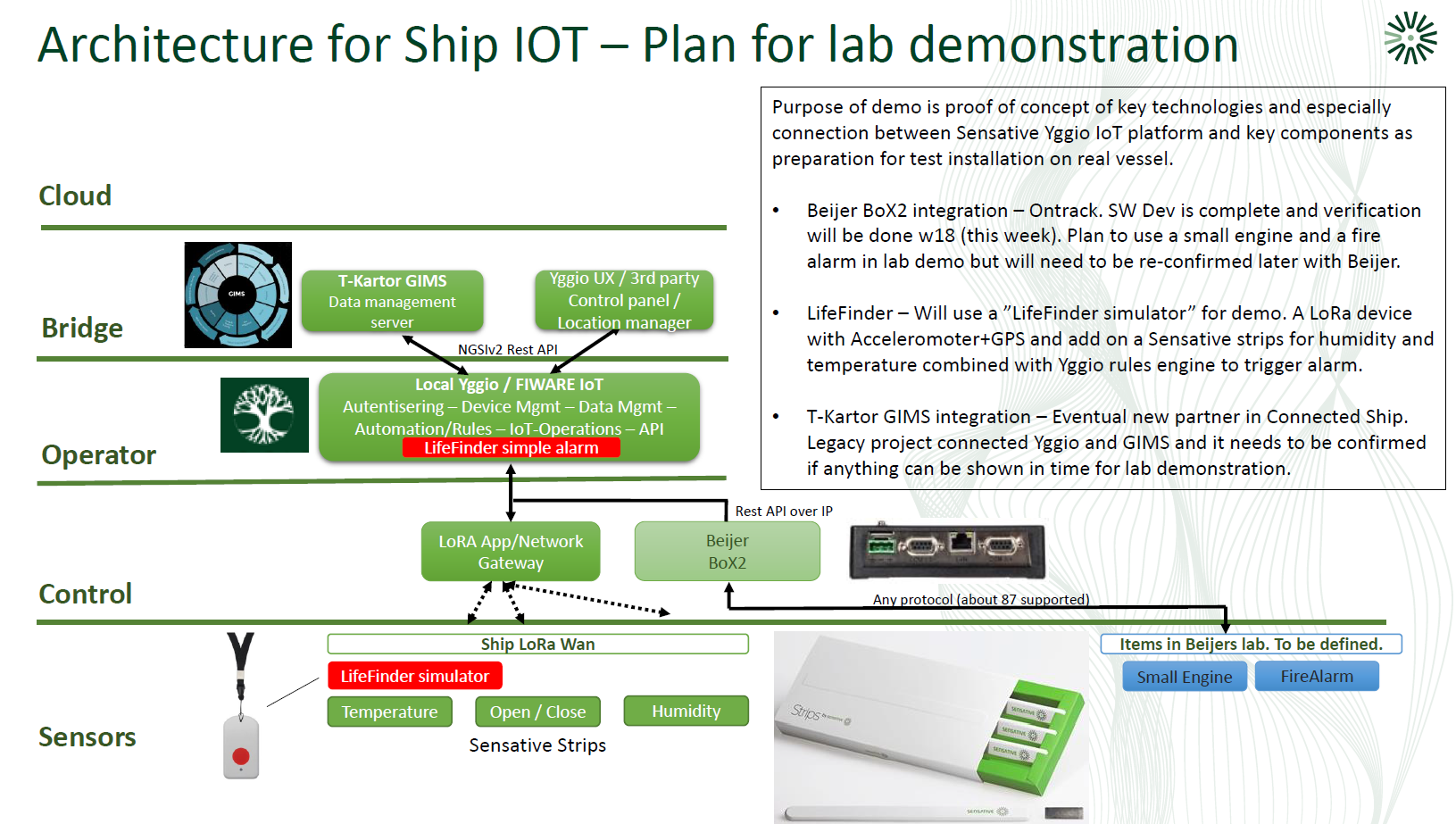April 4th,
From SmartCities to SmartShips
During the past ten years we have heard of Smart Cities and all its wonders, but can you imagine a Smart Ship? The future is connectivity, and through this project, supported by Nordic Innovation, we wish to demonstrate a digital data sharing-platform with the intend-ed purpose of enhancing:
- Increased Cyber Security onboard ships and in the transfer of data between ship and shore
- Improved vessel performance and energy efficiency by combining sensor measure-ments from equipment from various suppliers
- Better predicted maintenance based on big data and AI analytics
This generic platform will tear down barriers between departments and provide information to both seafarers and shore employees in one company but also provide knowledge inter-nally in the industry by sharing data to optimize the operation more broadly.
Knowledge-sharing and piloting
The project has had great support from the Innovation Committee at Danish Shipping, and several shipping companies have been interested in this project. Maersk Tankers, J. Lau-ritzen A/S, DFDS A/S, and Stena Line, among others, all follow the progress of the project and participate in the technical discussions doing its development. This knowledge-sharing is vital to make sure the project is founded on the needs of the shipping companies and seafarers. DFDS has kindly offered the first testing-ship where the principles of The Con-nected Ship can be piloted. This will be an exciting phase of the project and will, if things go right, has its startup in August/September, depending on the current Corona develop-ment. Onboard one of DFDS’s ships, technology, platforms, and experiences from smart city projects will be utilized in combination with maritime control systems, communication protocols, and environmental prerequisites. This will also prepare the ships for future in-teraction with the smart society – harbors, trucks, cargo, passengers, and other smart mi-cro-systems, creating a much more connected maritime industry.
Data-sharing to enhance fuel efficiency
The purpose of the project will be to connect critical vendor-specific systems vertically to the ship-digitalization platform to allow the shipowner to analyze the data across platforms, hereby drawing on principles from circular economy and information and communication technologies (ICT’s). This way, control of both data available today and a new type of data will be possible to support data analytics to improve vessel performance and save costs. The collection and proper use of data is a significant competitive advantage. The ship-digitalization platform will help collect and manage data across the equipment from various suppliers and be a platform for open innovation. Circular economy is also considered a tool that provides solutions to some of the sustainable development challenges. By ad-dressing the root causes, the concept of a circular economy, an economy in which waste and pollution do not exist by design, products, and materials are kept in use, and natural systems are regenerated. The project will develop solutions that can help shipowners re-duce energy consumption and thereby reduce CO2 emissions.
However, the maritime industry is generally lagging behind other industries when it comes to digitalization, connectivity, and smart technologies. The Connected Ship will, therefore, focus on creating collaboration among companies and combining existing technologies and knowledge from the Nordic ICT and cleantech industries in order to create innovations that increase energy efficiency in the maritime sector and support a faster transition to a more connected, sustainable and energy efficient maritime industry.
New business models and increased entrepreneurship
This will both create new business opportunities and increase entrepreneurship as well as boost competitiveness among companies in the Nordic countries. The development of new business models can give incentives to the involved companies to share data and thereby support startups, smaller companies, and universities who can research, innovate, and build new services.
Current status
Prior to installations on board a vessel, a lab verification of the intended IoT architecture will be performed. It includes using Sensative’s horizontal IoT platform Yggio that via a Beijer Electronic’s BOX2 device will simulate to connect to and record data from existing onboard vessel systems. Then new IoT sensors like Life Finder devices, temperature, humidity, CO2, open/closed, etc., will be connected to Yggio via a LoRa network to be able to support new interesting use cases. Even though a ship is almost entirely made of steel, a LoRa network has already been successfully tried onboard a vessel by one ship-owner, with promising results, so it is the proposed way forward for new IoT use cases.
PARTNERS
• Shipowners: The Innovation Committee at Danish Shipping, DFDS A/S, Maersk Tank-ers, J. Lauritzen A/S, Stene Line
• Producers of maritime equipment: Wärtsilä
• IT companies: Sea IT, LifeFinder, Sensative, Beijer Electronics
• Cluster organizations and business networks within maritime, cleantech and ICT: Mari-time Development Center, Swedish Maritime Technology Forum, Mobile Heights, VASEK, Accelerated Growth
FACTS: THE CONNECTED SHIP PROJECT
• Budget: 8 million NOK (50% as grant from Nordic Innovation + 50% as co-financing from partners)
• Project kick-off: 8/11/2019
• Duration: 24 months
CONTACT:
Mikkel Hansen, +45 2261 9448 / mh@mdc.center
Nanna Thit, +45 6022 7923 / nt@mdc.center
